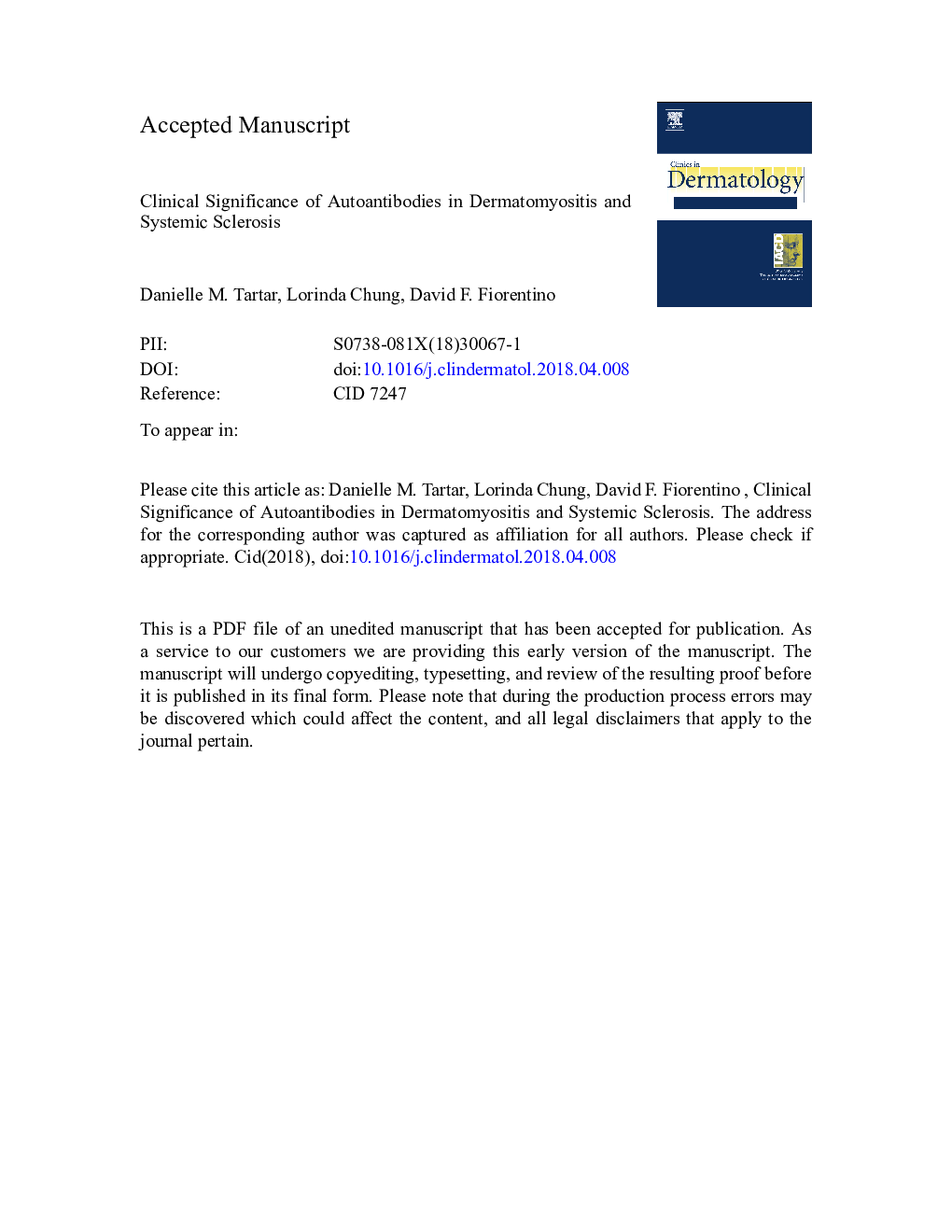| Article ID | Journal | Published Year | Pages | File Type |
|---|---|---|---|---|
| 8712298 | Clinics in Dermatology | 2018 | 43 Pages |
Abstract
Autoimmune connective tissue diseases, including dermatomyositis and systemic sclerosis, have a heterogeneous clinical presentation and prognosis; moreover, their clinical features are often incomplete and overlap with other rheumatic disorders, which can make diagnosis and prognostic stratification challenging. Specific autoantibodies have been associated with certain clinical findings as well as prognostic implications, and many new associations have been made over the last decade. Although patient populations manifest considerable heterogeneity, autoantibodies can be used to help predict clinical features, prognosis, and response to therapy. In this review, the clinical and prognostic implications associated with disease-specific autoantibodies in dermatomyositis and scleroderma are summarized with an emphasis on how the clinician can use this information for patient care.
Related Topics
Health Sciences
Medicine and Dentistry
Dermatology
Authors
Danielle M. MD, Lorinda MD, David F. MD,
